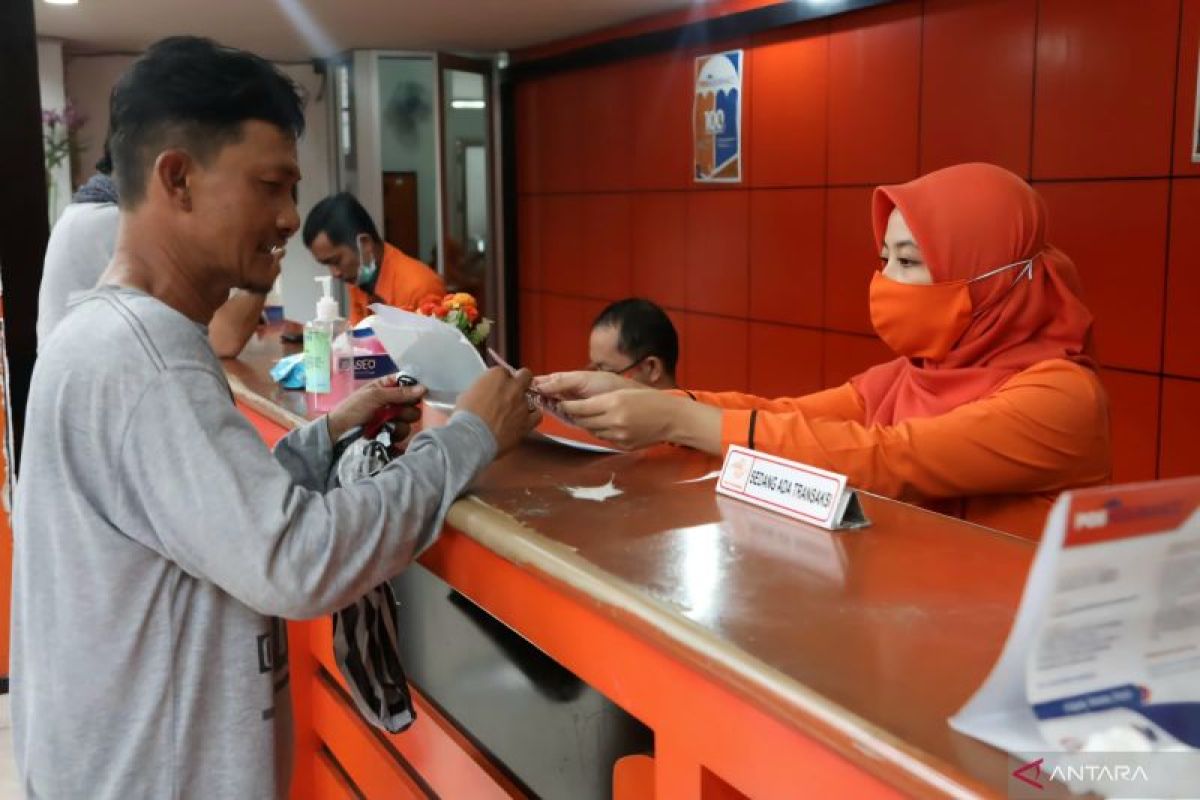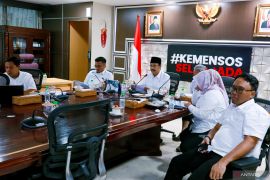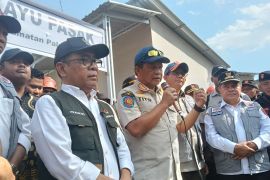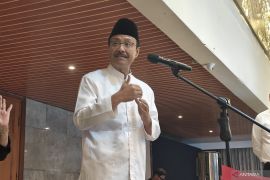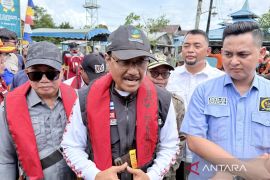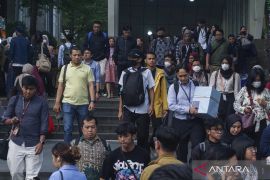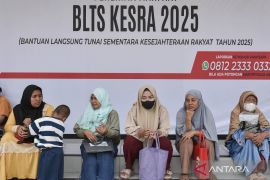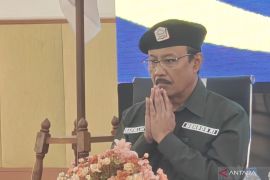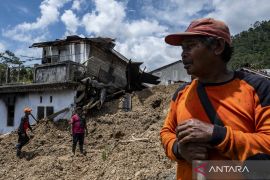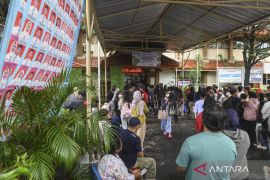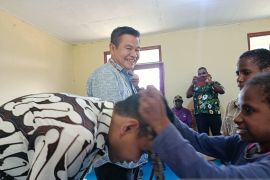The Ministry of Social Affairs has routinely provided social protection to low-income people through several programs, such as the Family Hope Program (PKH), Non-Cash Food Assistance, as well as food assistance for older adults and people with disabilities.
The beneficiary families of social assistance are those that have been registered in the Integrated Social Welfare Data (DTKS) managed by the Social Welfare Data and Information Center, with data enhancement carried out by regional governments through the Social Welfare Information System - Next Generation (SIKS-NG) since 2017.
With the large allocation of social assistance funds each year, regular data updates and transparency in the distribution process are key for preventing misuse of the funds.
In April 2024, Tri Rismaharini, the social affairs minister for the December 2020–September period, explained that the ministry had been seeking to tackle the challenge by disbursing social assistance directly to the bank accounts of beneficiaries since 2021.
This was done in cooperation with state-owned banks and state-owned postal company PT Pos Indonesia.
The ministry was also updating the DTKS every month to ensure the distribution was carried out in keeping with the condition of the beneficiaries.
To reduce mistakes in the verification of data of social assistance beneficiaries, the Ministry of Social Affairs also developed the Cek Bansos application, which allows people to propose or challenge beneficiary status.
"Through the application, people can make a report by including a photo of the (person's) house that is not in accordance (with requirements to become a beneficiary), then the officer will check it directly," Rismaharini said.
She emphasized that if the public found any discrepancies in the distribution of social assistance, they could contact the 24-hour Command Center set up by the ministry by dialing 171.
However, she did not deny that the distribution of social assistance was still ineffective, considering that her ministry had several data sources serving as references which needed to be updated regularly, for instance, the DTKS, Socio-Economic Registration (Regsosek) and the Acceleration of the Eradication of Extreme Poverty (P3KE) data.
Therefore, during the transfer of office this year, Coordinating Minister for Human Development and Culture, Muhadjir Effendy, asked the new Social Affairs Minister Saifullah Yusuf to improve the accuracy and management of data sources used for social assistance distribution, including DTKS.
Single Data Source
President Prabowo Subianto on October 30, 2024, summoned several ministers and heads of agencies responsible for the distribution of social assistance.
Minister Yusuf explained that the issue highlighted by President Prabowo at the meeting concerned data being still too sectoral.
The President noted that integrated data is crucial to ensure the accuracy of social assistance provided by the government.
For that reason, on the same day, after the meeting, the Ministry of Social Affairs initiated a limited meeting with the Poverty Eradication Acceleration Agency and the Ministry of National Development Planning as an initial step for preparing the Single Data Source.
At the meeting, the three institutions agreed to first integrate the Integrated Social Welfare Data of the Ministry of Social Affairs with the Socioeconomic Registration Data of the National Development Planning Ministry, which surveyed more than 250 million people in 2022.
The Social Affairs Minister expressed the hope that the preparation of Single Data Source could be completed within 100 working days of the meeting so that it could be used for the preparation of policies as well as more effective distribution of social assistance in 2025.
Head of the Poverty Eradication Acceleration Agency Budiman Sudjatmiko explained that the Single Data Source will integrate all data of the community, including those who are extremely poor, poor, and vulnerable to poverty, so that there will be no more overlaps of social assistance data.
Awaiting Single Data
To speed up the preparation of the Single Data Source, President Prabowo on November 26 held another closed meeting with ministers and heads of related agencies after returning from his overseas visit.
At the meeting, Statistics Indonesia (BPS) was selected to consolidate data from various agencies, ministries, and regional governments.
The BPS next accelerated the integration of the Single Data Source and visited ministries, agencies, and companies to obtain data regarding social and economic welfare.
On Tuesday (December 24), BPS Head Amalia Adininggar Widyasanti visited the office of the Minister of Social Affairs to convey the latest developments in the preparation of the Single Data Source.
The BPS has so far finished four stages of the data source's preparation. First, it has integrated individual data and second, it has integrated the data of families.
Third, it has cross-checked other data, such as data from state-run electricity company PLN and state health insurer BPJS Kesehatan. Fourth, it has also carried out data classification.
The number of individuals recorded in the Single Data Source is projected to be the same as the population of Indonesia.
The process of its preparation involves dynamics, such as beneficiaries whose living standards have improved, those whose domicile has changed, and those who have died.
However, the BPS is ensuring that the integration would make the standard for the selection of social assistance beneficiaries clearer.
Thus, after being matched, the data will be sent back to ministries/institutions, such as the Ministry of National Development Planning, the Ministry of Social Affairs, and the Coordinating Ministry for Human Empowerment.
Widyasanti expressed optimism that the socioeconomic Single Data Source will be made available in 2025, in line with the wishes of President Prabowo.
Related news: Jakarta strengthening social assistance beneficiaries' data
Related news: Minister stresses need for improving social data
Editor: Rahmad Nasution
Copyright © ANTARA 2024
